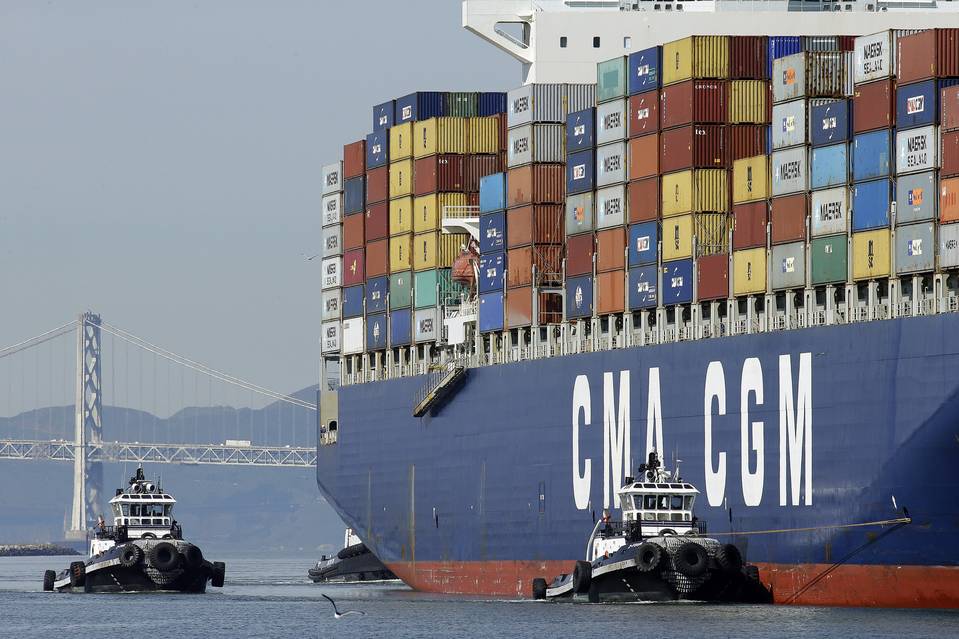- China Emerges Nigeria’s Leading Source of Imports with $1.6bn
It emerged at the weekend that China is now Nigeria’s leading source of imported goods with an import value of $1.6 billion (N478 billion) equivalent to 20 per cent of Nigeria’s total imports.
This is, according to the merchandise trade data released by the Nigerian Bureau of Statistics (NBS) in its latest foreign trade statistics for the third quarter of 2016.
According to the NBS data, Belgium emerged the second largest source of imports in the review period, with an import value of $1.1 billion (N331billion).
The NBS data put the total value of trade at N4.72 trillion, representing an increase of 16 per cent on the preceding quarter.
The data, however, showed a trade deficit of N104 billion, which compared with N482 billion in the second quarter of 2016.
Analysts at FBN Quest noted that the increase in imports in a recession in the first three quarters of last year was due to the weakness of the naira exchange rate.
Analysis of the NBS data showed that total exports stood at N2.31 trillion in Q3 last year while the total value of imports was N2.41trillion. This represented increases of 29 per cent Quarter-on-Quarter (Q/Q) and 6 per cent q/q respectively.
A further analysis of the NBS report showed that the value of imports from other African countries amounted to $290 million (N88 billion)
However, Economic Community of West Africa States (ECOWAS) countries accounted for just 10 per cent of Nigeria’s total trade.
In terms of exports, crude oil was the largest contributor with a total value of N1.9 trillion ($6.2 billion). Meanwhile, the total value of agricultural products exported stood at N14.4 billion ($50 million).
Frozen shrimps and prawns accounted for 37 per cent and sesame seeds 34 per cent of total agricultural exports in the third quarter of 2016.
Experts believe the Federal Government of Nigeria (FGN)’s import substitution strategy will have a significant impact on imports in the years ahead.
“Nigeria is heavily dependent on imports. However, given the current foreign exchange illiquidity, we expect the FGN’s import substitution strategy to have a significant impact over time. Furthermore, consistent growth in agriculture and a significant boost in the manufacturing sector should make the country more export-oriented in the medium term,” said analysts at FBN Quest.
The federal government had recently reduced import duties on more than 89 items in various sectors of the nation’s economy.
The reduction approved by President Muhammadu Buhari, is to promote development in critical sectors of the economy, and is part of its 2016 Fiscal Policy Measures.
A circular issued by the Ministry of Finance said the measures supersede the 2015 Fiscal Policy Measures.
According to the circular signed by the Minister, of Finance, Mrs. Kemi Adeosun, the directive was made up of the Supplementary Protection Measures (SPM) for implementation together with the ECOWAS CET 2015 – 2019.
The minister explained that the ECOWAS CET, which will cover the 2017 to 2019 fiscal periods, is composed of three categories made up of an Import Adjustment Tax list of 173 tariff lines, a national list consisting of 91 items and an import prohibition list of 25 items, which is applicable to certain goods originating from non-ECOWAS member states.

 Naira4 weeks ago
Naira4 weeks ago
 Naira4 weeks ago
Naira4 weeks ago
 Travel4 weeks ago
Travel4 weeks ago
 Jobs4 weeks ago
Jobs4 weeks ago
 Naira4 weeks ago
Naira4 weeks ago
 Naira3 weeks ago
Naira3 weeks ago
 Investment4 weeks ago
Investment4 weeks ago
 Travel4 weeks ago
Travel4 weeks ago




























